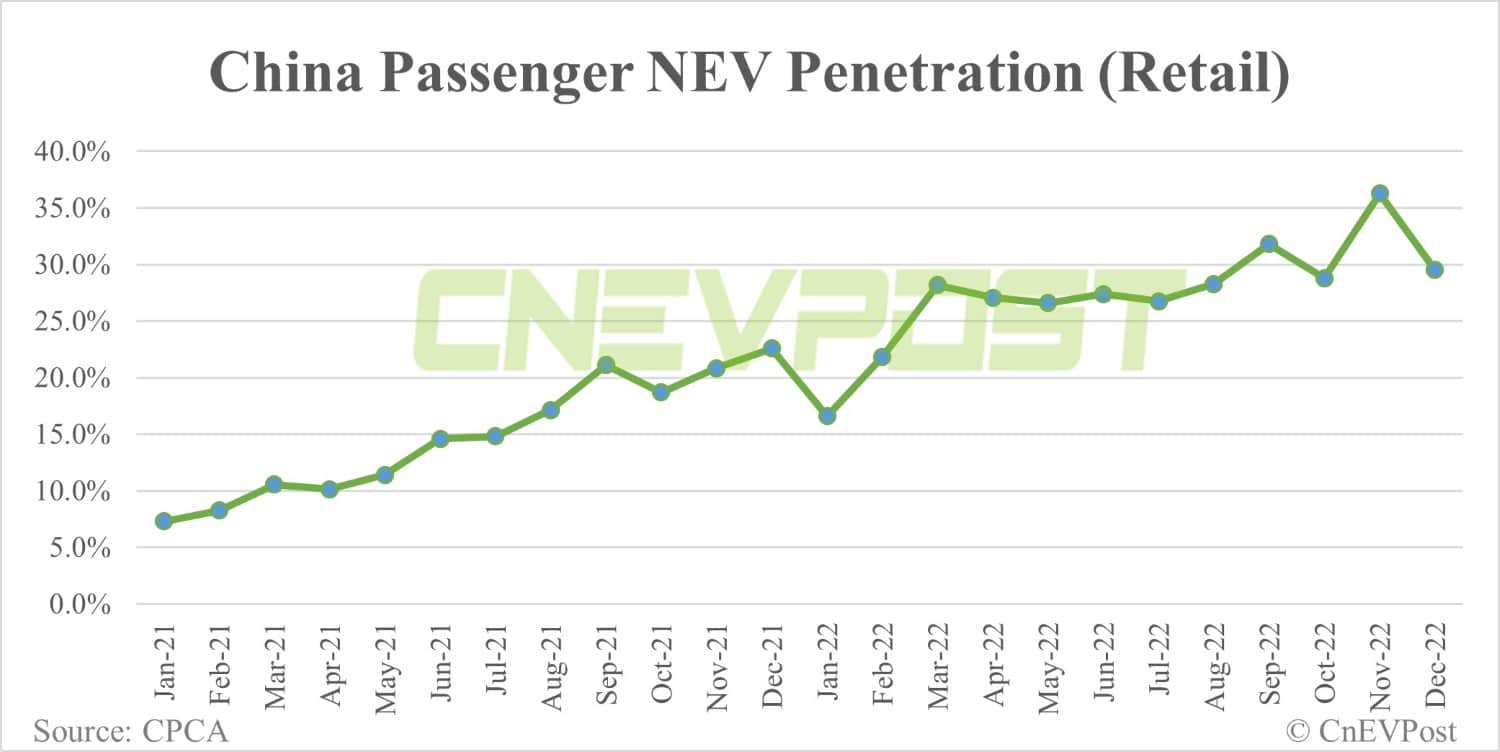This is the latest measure in China aimed at boosting the EV industry, which previously saw high growth in the private sector.
China is launching a pilot program to promote the adoption of electric vehicles (EVs) in the public sector, after high growth in the private sector drove new energy vehicle (NEV) penetration to about 30 percent.
The country is launching a nationwide pilot program to fully electrify public sector vehicles, according to a document released today by eight government departments, including China's Ministry of Industry and Information Technology, Ministry of Finance and Ministry of Transportation.
The public sector vehicles in the document include public service vehicles, city buses, cabs, sanitation vehicles, express delivery vehicles, logistics and distribution vehicles, and airport vehicles, and the pilot period is from 2023 to 2025.
China hopes to gain replicable and scalable experience and models through the pilot to promote the development of NEVs under market forces and the construction of a low-carbon transportation system, according to the document.
The document lists the main objectives of the pilot:
The proportion of NEVs in new and updated vehicles in the pilot areas will be significantly increased, with the proportion striving to reach 80 percent in urban buses, cabs, sanitation vehicles, courier vehicles and urban logistics and distribution.
China will build a moderately advanced, balanced layout, intelligent and efficient charging and battery swap infrastructure system, with service capacity significantly improved.
The ratio of new public charging piles to the number of NEVs added to the public sector strives to reach 1:1, and the proportion of parking spaces for charging facilities in highway service areas is expected to be no less than 10 percent of small parking spaces.
China will establish an intelligent transportation system, a green energy supply system, and a new information and communication network system to adapt to the innovation and development of NEVs, and realize the efficient interaction between NEVs and the power grid.
The application of new technologies such as intelligent and orderly charging, high-power charging, and fast battery swap is effectively expanded, and new technologies such as the integration of vehicles and networks are fully validated.
The key tasks of the pilot are to enhance vehicle electrification, promote the application of new technology innovation, improve charging and battery swap infrastructure, and improve the policy and management system.
China will support innovations in business models including battery swap, financial leasing, and vehicle body-battery separation, the document reads.
The country encourages regions to use existing sites and facilities to build a number of integrated energy service stations with functions including charging, battery swap and refueling.
Chinese cities can voluntarily apply to participate in the pilot, and if they want to be one of the first cities, they need to submit an application by March 31.
This is the latest measure by the Chinese government to promote the development of NEVs, after the country saw rapid growth in the private sector over the past two years.
For the full year 2022, retail sales of new energy passenger vehicles in China were 5.67 million units, up 90 percent year-on-year, according to data released by the China Passenger Car Association (CPCA) on January 10.
Retail sales of all passenger vehicles in China were 20.54 million units in 2022, an increase of 1.9 percent year-on-year. This means that the penetration of new energy passenger vehicles in China reached 27.6 percent in 2022.
In December, retail sales of NEVs in China were 640,000 units, contributing 29.5 percent of all passenger vehicle sales.
